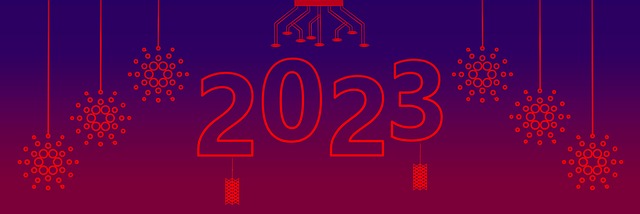
Cardano (ADA) is a blockchain pioneer, driven by scientific rigor, that aims to revolutionize finance through its secure, scalable, and energy-efficient Proof-of-Stake consensus model. With its focus on interoperability, regulatory compliance, and sustainability, Cardano positions itself as a key player in the emergence of Central Bank Digital Currencies (CBDCs). By offering an efficient, eco-friendly alternative to traditional banking systems, Cardano challenges established order and paves the way for heightened efficiency, transparency, and inclusivity in global finance. Its advanced smart contract language, Plutus, safeguards transactions against fraud, while its decentralized architecture enhances scalability for high-volume processing without compromising security or privacy. Global adoption of Cardano-based CBDCs could transform financial systems worldwide, integrating traditional banking with decentralized technologies and creating new opportunities.
Cardano (ADA) has emerged as a leading blockchain platform, offering a robust ecosystem that could revolutionize global financial systems. As central banks explore Central Bank Digital Currencies (CBDCs), Cardano’s unique position combines traditional finance security with decentralized innovation. This article delves into how Cardano can bridge these contrasting worlds, focusing on its smart contract capabilities, security measures, and the potential impact of ADA-based CBDCs in transforming global financial infrastructure.
- Understanding Cardano and Its Unique Position in the Blockchain Space
- The Rise of Central Bank Digital Currencies (CBDCs)
- Traditional Finance vs. Decentralized Technologies: A Clash of Worlds
- How Cardano Can Bridge the Gap Between These Two Ecosystems
- Exploring Cardano's Smart Contract Capabilities and Their Relevance to CBDCs
- Security, Privacy, and Scalability: Addressing Key Concerns for CBDCs on Cardano
- The Potential Impact of Cardano-Based CBDCs on Global Financial Systems
Understanding Cardano and Its Unique Position in the Blockchain Space

Cardano (ADA) stands out in the blockchain landscape as a pioneer and game-changer, offering a unique blend of scientific rigor, peer-reviewed research, and decentralized technology. Founded by Charles Hoskinson, one of the co-founders of Ethereum, Cardano is not just another cryptocurrency but a platform designed to facilitate smart contracts and decentralized applications (dApps). Its native blockchain, powered by the Proof-of-Stake (PoS) consensus mechanism, promises enhanced security, scalability, and energy efficiency compared to Proof-of-Work (PoW) systems.
What sets Cardano apart is its emphasis on interoperability, regulatory compliance, and sustainability. The platform’s research-driven approach ensures that updates and improvements are thoroughly tested and implemented with the community’s input. This meticulous process has led to a robust and adaptable ecosystem capable of integrating traditional financial systems with decentralized technologies. With its unique position and innovative features, Cardano is poised to play a significant role in shaping the future of finance, especially as central banks worldwide explore Central Bank Digital Currencies (CBDCs).
The Rise of Central Bank Digital Currencies (CBDCs)

In recent years, the financial landscape has been undergoing a significant transformation with the advent of Central Bank Digital Currencies (CBDCs). This shift is driven by the need to modernize monetary systems and keep pace with technological advancements. Traditional fiat currencies are increasingly being complemented—and in some cases, even replaced—by their digital counterparts. The rise of CBDCs is a response to the growing demand for faster, more efficient, and borderless transactions, a concept that aligns perfectly with the decentralized finance (DeFi) revolution.
Cardano, a leading blockchain platform known for its focus on security and sustainability, plays a crucial role in this evolving ecosystem. Its native cryptocurrency, ADA, has garnered attention as a potential medium for future digital currencies, including CBDCs. The platform’s robust smart contract capabilities and emphasis on scalability make it an appealing choice for central banks exploring the implementation of their own digital currencies. By leveraging Cardano’s infrastructure, governments can potentially offer citizens faster, cheaper, and more accessible financial services while maintaining control over monetary policy.
Traditional Finance vs. Decentralized Technologies: A Clash of Worlds

In the ever-evolving financial landscape, a clash between traditional finance and decentralized technologies is evident. Traditional banking systems, characterized by centralized institutions like banks, have long dominated financial transactions. These systems rely on intermediaries to facilitate payments, manage assets, and maintain trust. However, the emergence of blockchain technology and decentralized digital currencies (DDCs), such as Cardano (ADA), challenges this status quo.
Decentralized technologies offer a paradigm shift, eliminating the need for intermediaries by leveraging peer-to-peer networks and distributed ledgers. Cardano, with its focus on scalability, security, and sustainability, stands out as a prominent example of this revolutionary change. Unlike traditional finance, which often involves complex processes and high fees, decentralized systems aim to provide faster, cheaper, and more accessible financial services to users worldwide. This clash between the established order and emerging decentralized innovations sets the stage for an exciting future in the realm of finance, where the potential for greater efficiency, transparency, and inclusivity awaits.
How Cardano Can Bridge the Gap Between These Two Ecosystems

Cardano, with its innovative blockchain technology, is poised to bridge the gap between traditional finance and decentralized technologies. The platform’s unique features, such as a robust scientific approach to development and a focus on scalability, security, and sustainability, make it an ideal candidate for facilitating the transition. By leveraging smart contracts and a proof-of-stake consensus mechanism, Cardano offers a more efficient and eco-friendly alternative to traditional banking systems.
Additionally, Cardano’s ability to integrate with centralized financial institutions while maintaining decentralization sets it apart. This dual nature allows for seamless interaction between the legacy financial ecosystem and the emerging world of decentralized finance (DeFi). As a result, Cardano can enable businesses and individuals to access the benefits of both worlds, including enhanced security, transparency, and accessibility in transactions, while also enjoying the potential advantages of blockchain technology and cryptocurrencies.
Exploring Cardano's Smart Contract Capabilities and Their Relevance to CBDCs

Cardano’s smart contract capabilities offer a compelling intersection with Central Bank Digital Currencies (CBDCs). The platform’s robust and scalable blockchain infrastructure enables the creation and execution of complex contracts, mirroring traditional financial instruments. This is particularly relevant for CBDCs as it allows for the digital representation of various financial products, including securities and derivatives. By leveraging Cardano’s smart contract language, Solidity-like Plutus, central banks can ensure secure and transparent transactions while maintaining control over their digital assets.
In addition, Cardano’s decentralized nature aligns with the principles of a distributed CBDC ecosystem. The platform’s proof-of-stake consensus mechanism promotes energy efficiency and security, addressing concerns around the environmental impact and security of traditional cryptocurrency systems. This makes Cardano an attractive option for central banks looking to adopt blockchain technology while mitigating potential drawbacks.
Security, Privacy, and Scalability: Addressing Key Concerns for CBDCs on Cardano

Cardano, known for its focus on security and sustainability, presents a compelling platform for Central Bank Digital Currencies (CBDCs). As CBDCs gain traction globally, addressing key concerns like security, privacy, and scalability is paramount. Cardano’s robust smart contract language, Plutus, offers a secure and verified environment for digital currency transactions, mitigating potential risks associated with fraudulent activities.
Privacy is another critical aspect where Cardano distinguishes itself. The platform employs advanced cryptographic techniques to ensure the confidentiality of user data, addressing concerns about sensitive financial information exposure. Furthermore, Cardano’s decentralized nature enhances scalability, enabling efficient processing of a high volume of transactions without compromising security or privacy, making it a promising choice for future-proof digital currency infrastructure.
The Potential Impact of Cardano-Based CBDCs on Global Financial Systems

The potential impact of Cardano-based Central Bank Digital Currencies (CBDCs) on global financial systems is a topic of growing interest and speculation. Cardano, known for its robust blockchain technology and focus on scalability, security, and sustainability, could play a pivotal role in shaping the future of digital currencies. With its innovative approach to smart contracts and consensus mechanisms, Cardano-based CBDCs have the capacity to enhance financial inclusion by providing accessible, borderless transactions, potentially reducing costs, and increasing efficiency for both individuals and institutions.
Moreover, these digital currencies can offer enhanced transparency and auditability, addressing concerns around central bank oversight and accountability. The global adoption of Cardano-based CBDCs could lead to a more interconnected and efficient financial landscape, where traditional banking systems seamlessly integrate with decentralized technologies, paving the way for a new era of financial services and opportunities worldwide.
Cardano’s innovative approach to blockchain technology positions it as a key player in shaping the future of central bank digital currencies (CBDCs). By bridging traditional finance and decentralized technologies, Cardano offers enhanced security, privacy, and scalability, addressing critical concerns for CBDC adoption. Its robust smart contract capabilities and unique consensus mechanism make it a compelling solution for global financial systems looking to embrace digital transformation while maintaining stability and trust. With ongoing development and growing support, Cardano-based CBDCs have the potential to revolutionize cross-border transactions, improve financial inclusion, and create a more efficient and secure global economic infrastructure.





